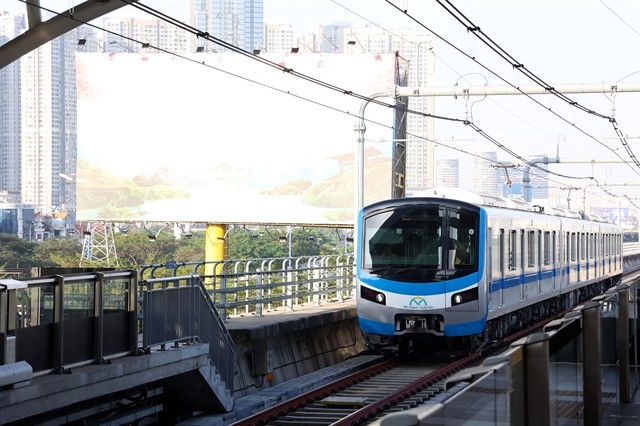By integrating shopping and services, it hopes to offer metro users greater and quick access to goods while supporting the city's broader retail development strategy.
The initiative stems from a proposal made in May 2025 by retail operator Saigon Co.op to integrate retail points at select stations.
Authorities believe that utilising space around metro stations for commerce could generate significant economic returns.
It could also enhance the appeal of the metro by providing commuters with access to value-added services, including retail, payments and amusement.
Integrating commercial and service spaces directly into metro stations is seen as a key step towards forming new urban commercial hubs that stimulate economic activity.
Drawing on examples from countries such as Japan, South Korea and Singapore, the department said urban railway stations there often act as high-density commercial zones.
Their successful integration of retail, services and transit facilities offers valuable insights into the benefits of the model, it said.

The Ben Thanh – Suoi Tien metro line, which became operational at the end of 2024, runs nearly 20 kilometres and represents a milestone in the development of the city’s public transport system.
Under the city’s roadmap, the network is expected to expand to 335 kilometers by 2035, opening vast new corridors for commercial and infrastructural development.
In this context, the department emphasised the importance of preparing a compatible commercial ecosystem alongside the expansion.
Modern retail models will need to be developed and aligned with transit infrastructure to fully capitalise on the investment in urban rail.
Such an ecosystem would not only support the daily needs of metro passengers but also serve the broader consumer base, creating new demand channels and stimulating spending.
It will serve to modernise the city's distribution systems, provide new retail opportunities and contribute to the city’s strategy for sustainable urban growth.
As domestic consumption accounts for more than 70 percent of Vietnam’s GDP, the initiative is also seen as a measure to help balance economic growth in a complex global economic environment.
The trial, if approved, will be implemented with consideration of space planning, passenger flow, safety regulations, and digital transaction infrastructure.
The city’s retail market saw revenues of nearly VND1.4 quadrillion (US$55 billion) in 2024 after growing at over 10 percent from the previous year.
With consumer demand increasingly shifting towards convenience and integrated service models, the metro-based retail initiative is expected to be well received by both businesses and the public.
























